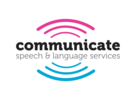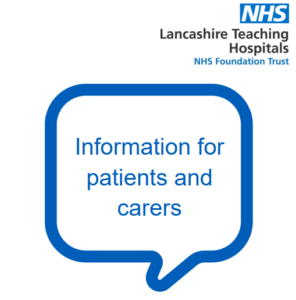Autism Spectrum Disorder Pathway
Communicate SLT CIC have been commissioned by Lancashire Teaching Hospitals NHS Foundation Trust to assess children’s communication and language skills as part of the Autism Spectrum Disorder Pathway.
Children and young people living in Greater Preston, and Chorley and South Ribble who have been referred to the Autism Spectrum Disorder Pathway can access this service for free.
This project initially covered the period January to July 2023, however it has now been extended to continue to support children and young people to receive their diagnosis and support sooner.
Information for nurseries or schools
Communicate SLT CIC have been commissioned by Lancashire Teaching Hospitals NHS Foundation Trust to undertake speech and language therapy assessments for children and young people in Greater Preston, and Chorley and South Ribble areas.
Specialist Speech and Language Therapists (SLTs) from our team are supporting colleagues in the Lancashire Teaching Hospitals NHS Foundation Trust with the assessments that form part of the Autism Spectrum Disorder Pathway.
The parents or carers of the children and young people who have been referred will receive a letter/email from Lancashire Teaching Hospitals NHS Foundation Trust. The letter informs parents or carers about Lancashire Teaching Hospitals NHS Foundation Trust's plan to share information about the child or young person with the Communicate SLT team.
On receipt of this information, Communicate SLT will then contact parents or carers to arrange an appointment for an assessment.
To make the process of booking appointments as easy and efficient as possible for parents or carers, please be aware that Communicate SLT often use online forms and web based booking systems.
The SLT does not need to see or speak with the child’s parents or carers, or take a case history, during the speech and language assessment. The SLT simply needs to observe how the child or young person communicates with others. Therefore, ideally the SLT will see the child or young person in their nursery or school. If the child or young person does not attend nursery or school, we can visit the child or young person at their home.
Your assistance to help us to arrange and undertake these assessments so that all children and their families receive their diagnosis and support as quickly and efficiently as possible, is very much appreciated.
Assessment process explained:
Who will book this appointment?
We are asking parents or carers to arrange an appointment, after checking with the child or young persons' nursery or school about the best date and time for Communicate SLT to undertake the assessment onsite. This is so parents receive automated reminders of the appointment.
An SLT will visit your nursery or school to observe the child or young person for 45-60 mins. The SLT does not need to talk to staff and parents do not need to attend. It is very unlikely that the SLT will want to undertake any language assessments, they will simply observe how the child interacts in their typical environment. The visit should not affect your workload at all, as we know that nurseries and schools are already incredibly busy.
What does the Speech and Language Therapist need to observe?
The Speech and Language Therapist (SLT) needs to observe the child or young person during some structured and some social time. For pupils who are Key Stage 1 -5, we will try to schedule the observation so that some of the time we observe is a break time. If the appointment has been booked during a time when this will not be possible, please let us know as soon as possible.
How you can help:
- Ask the parents about the service/project and encourage them to communicate with us to arrange an assessment appointment.
- Remind parents of any appointments that have been made.
- Please don’t tell the child or young person that they are being observed, this might cause them to be anxious or behave differently.
- Please be as flexible as possible as appointment times may vary slightly e.g., if we have a cancellation or if another assessment runs over.
For further information, please see the Frequently Asked Questions section below.
Frequently Asked Questions
Why has my child been referred to the Autism Spectrum Disorder Pathway?
Please find links to the Lancashire Teaching Hospitals NHS Foundation Trust patient and carers leaflets below which explain why referrals are made to the team:
Chorley and South Ribble (Broadoaks CDC)
Greater Preston (Ashton Health Centre) – pre-school aged children
Greater Preston (Ashton Health Centre) – school aged children
How do I find out more about the Autism Spectrum Disorder Pathway Multidisciplinary Assessment?
Please find links to the Lancashire Teaching Hospitals NHS Foundation Trust patient and carers leaflets below explaining the assessment process and further contact information:
Chorley and South Ribble (Broadoaks CDC)
Greater Preston (Ashton Health Centre) – pre-school aged children
Greater Preston (Ashton Health Centre) – school aged children
For further information or to enquire about a specific child or young person, please email the Autism Spectrum Disorder Pathway Multidisciplinary Team at:
Chorley and South Ribble (Broadoaks CDC) - broadoakscommunityclinics@lthtr.nhs.uk
Greater Preston (Ashton Health Centre) - childhealth.management@lthtr.nhs.uk
Do I need to pay?
No, you will not need to pay Communicate SLT. Lancashire Teaching Hospitals NHS Foundation Trust have commissioned Communicate SLT to carry out these speech and language assessments, so they are free for the children and young people who have been referred to our team.
How will my information be stored by Communicate SLT?
Communicate SLT will store your information securely and in line with our School Aged Privacy Notice. A copy of Communicate SLT’s Privacy Notice can be accessed through this link: https://communicate-slt.org.uk/information/school-aged-privacy-notice/
Can I object to a child or young person's personal information being shared with Communicate SLT CIC?
Yes, a parent or carer has the right to object to a child or young person's information being shared with Communicate SLT. If you wish to object, please contact CommunicateReferrals@lthtr.nhs.uk within 7 days of receiving the initial letter/email. After this time, a parent or carer can still choose to decline the offer of Communicate SLT's speech and language therapy assessment at any point prior to the appointment going ahead. Communicate SLT will then return the child or young person's referral details back to the NHS team.
Will a parent or carer (or the child or young person's nursery or school) receive a copy of the SLT assessment report?
The SLT's speech and language assessment report will initially be shared with the multidisciplinary team at Lancashire Teaching Hospitals NHS Foundation Trust. Once the parent or carer has met with the multidisciplinary team, they will share Communicate SLT's report with the parent or carer. The parent or carer may request a copy of the report (free of charge) if this is required before the scheduled multidisciplinary team meeting by completing The Trust’s ‘Access to Health Records’ form via the link below:
https://www.lancsteachinghospitals.nhs.uk/access-your-health-records
Can Communicate SLT assist with any queries about other multidisciplinary team services or assessments?
Communicate SLT's Speech and Language Therapists are not employed by Lancashire Teaching Hospitals NHS Foundation Trust and therefore cannot answer questions about other multidisciplinary team services or assessments.
Please contact the relevant NHS Speech and Language Therapy teams if you have any questions:
- Website: Children's Speech and Language Therapy Service :: Lancashire and South Cumbria NHS Foundation Trust (lscft.nhs.uk)
- Greater Preston area Email: GPSLT@lscft.nhs.uk
- Chorley/South Ribble area Email: CSR@lscft.nhs.uk
Will the Communicate SLT therapist carrying out the speech and language assessment have a Disclosure and Baring Service (DBS) check?
Communicate SLT carry out a range of processes and checks to ensure we employ the right people to work or volunteer in roles that have contact with children and young people. Communicate SLT rely on Disclosure and Barring Service (DBS) checks, and ask for 'enhanced with barred list' checks in that regard.
All Communicate SLT therapists subscribe to the DBS Update Service. This means that anyone can check our therapist's current DBS status online (at DBS CRSC (crbonline.gov.uk) using the SLT’s name, date of birth and DBS number (which our therapists will supply when asked). Additionally, our therapists may also carry with them a paper copy of their DBS check. Please note the DBS check may not have been carried out by Communicate SLT if the therapist has multiple employers.
How do I cancel and/or re-arrange an appointment?
If the child/young person becomes unable to attend an appointment, to avoid our SLT travelling unnecessarily and so that we can try to offer another child or young person that appointment date and time, we ask that you take appropriate action as soon as possible.
Please follow the instructions you will have received in the invite, alternatively, please contact us as below:
Email: referrals@communicate-slt.org.uk
Telephone: 01772 382432
We will work with you to reschedule a mutually convenient time to visit as soon as we can.
What will happen if the child or young person is unable to attend a pre-booked appointment?
If a parent or carer does not contact Communicate SLT in good time or you miss multiple appointments, then the child or young person may be transferred back to the NHS waiting list.
How to help children and young people who have social communication difficulties
Children and young people who are referred for Autism Spectrum Disorder assessment often have varying levels of difficulties with social communication, repetitive thinking and interaction.
Social communication and interactions
If a child or young person has difficulties with social communication and interaction they will have difficulties in understanding and using verbal and non-verbal communication (e.g. use of eye-contact, facial expression, body language, gestures and tone). They may have no or limited speech. They may prefer to be in their own world and not have a desire to interact with others.
If a child or young person has no or limited speech you can help by:
- Using Intensive Interaction. Please see intensive-interaction-leaflet.pdf (childrenandfamilyhealthdevon.nhs.uk) for more information.
- Creating opportunities for communication by using sabotage techniques. To see how to do this please see our video on ‘Sabotage Strategy’ at https://communicate-slt.org.uk/information/social-value/
- Providing alternative means for a child to communicate. This is best done alongside a specialist professional such as Speech and Language Therapist or specialist teachers. Examples might include the use of Picture Exchange Communication System (PECS), use of a sign system such as Makaton or Signalong, use of symbols boards or books.
Repetitive thinking
If a child or young person has difficulties with repetitive thinking they may find changes and transitions difficult. They may have a strong desire for rules and like to organise things in a particular way. They may have intense and/or unusual interests compared to their peer group.
You can help by trying to keep some consistency within daily routines and prewarning of changes.
The use of visual supports can help. Please see our video on ‘Visuals to support understanding and transitions’ at https://communicate-slt.org.uk/information/social-value/
Understanding other people
A child or young person may have good language skills but may find other people hard to understand. They may not interpret another person’s emotions or thoughts. They misinterpret a person’s intended meaning and find non-literal language (e.g. sarcasm, humour and figures of speech) hard to understand. They may find it hard to converse with others and form and maintain friendships.
You could help a child or young person’s understanding of others by:
- Using social stories. Please see https://www.autism.org.uk/advice-and-guidance/topics/communication/communication-tools/social-stories-and-comic-strip-coversations for more information.
- Using Comic Strip Conversations. Please see our video on ‘Comic Strip Conversations’ at https://communicate-slt.org.uk/information/social-value/
- Trying to make the abstract concept of emotions more ‘concrete.’ You could colour code emotions on a traffic light system or use a numerical scale. E.g. a green traffic light or number 1 means I am calm. The red traffic light or number 5 on the scale means I am angry. Other people in the child/young person’s environment could label their own emotions as they occur. They could label the emotion but also describe how it feels internally and what they could do when that emotion is happening. Pictures can help to support this. An example can be found at: https://education.nsw.gov.au/campaigns/inclusive-practice-hub/all-resources/primary-resources/other-pdf-resources/emotion-cards
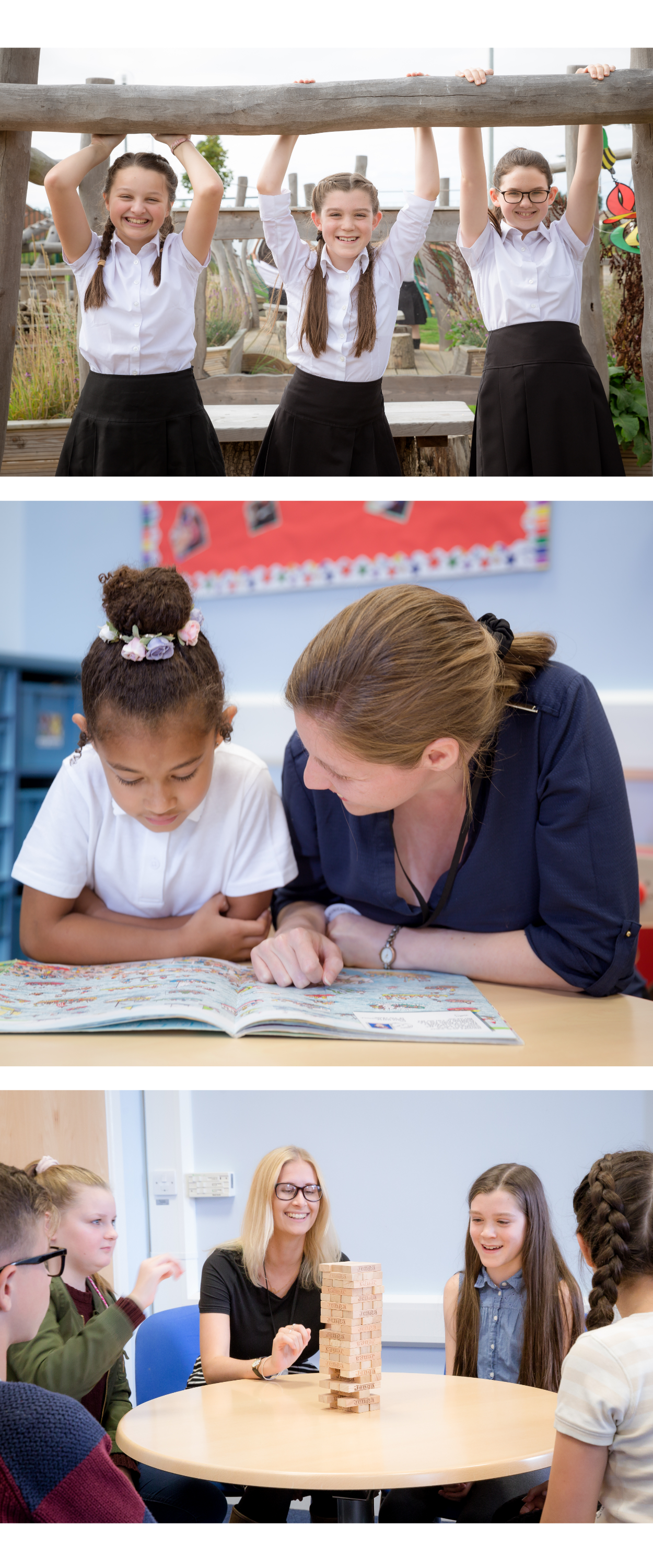
Meet the Team
Specialist Speech and Language Therapists

Jenny Kenrick
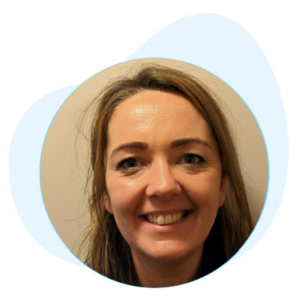
Jo Ryder

Kate Henderson
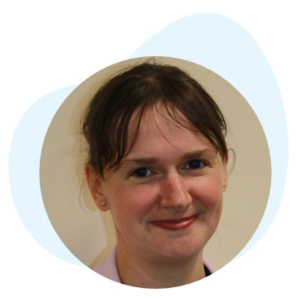
Kirsty Stansbie-Brown

Louise O'Meara
Resources for parents / carers
If you have any further Autism Spectrum Disorder Pathway queries, or would like to find out more about Communicate SLT CIC and the services we provide, please contact us on the details below:
Email: referrals@communicate-slt.org.uk
Telephone: 01772 382432
